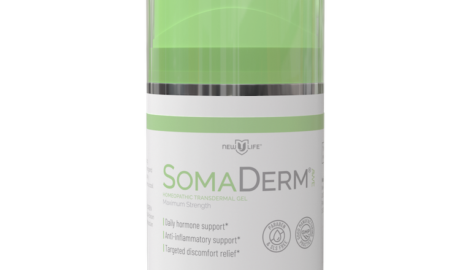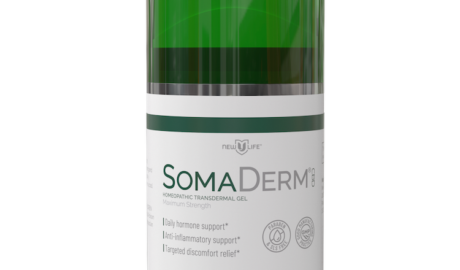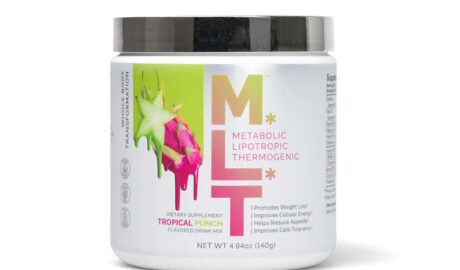Many people turn to hair supplements hoping for faster hair growth, but can they actually speed up the process? The short answer is no—hair grows at an average rate of half an inch per month, and supplements won’t override your natural growth cycle. However, they can support healthier, stronger hair, reducing breakage and making strands appear longer over time.
Key nutrients like biotin, collagen, vitamin D, iron, and zinc are essential in follicle function, keratin production, and hair strength. If you’re deficient in any of these, supplements may restore balance and promote growth by nourishing hair follicles, improving scalp circulation, and strengthening hair from the inside out.
Results vary based on genetics, diet, lifestyle, and underlying health conditions. Most people need 3-6 months of regular supplementation before noticing a visible difference. Hair supplements work best when combined with a healthy diet, proper hydration, stress management, and a gentle hair care routine.
Do Hair Supplements Work for All Hair Types?
Hair supplements don’t work the same way for everyone. Their effectiveness depends on genetics, hair texture, nutrient absorption, and individual health needs.
Individual Response Varies
Some people see results within months, while others may notice minimal changes. Your body’s ability to absorb and utilize nutrients dramatically affects how well supplements work for you.
Genetic Factors
Your genetics determine hair thickness, density, and growth cycle length. While supplements support hair health, they can’t change genetic limitations.
Hair Structure and Texture
Different hair types—straight, wavy, curly, and coily—have unique needs. Curly and coily hair, for example, tends to be drier and more fragile, so supplements rich in omega-3s and collagen may help boost moisture retention and elasticity.
Addressing Nutritional Deficiencies
Supplements work best when they correct actual deficiencies. Taking the right supplement can improve hair thickness and strength if your hair is lost due to low iron, vitamin D, or biotin levels. However, if your hair issues stem from hormonal imbalances, stress, or genetics, supplements alone may not provide noticeable results.
Tip: If you’re unsure which nutrients you need, consider getting a blood test before starting a supplement regimen.
9 Best Natural Supplements for Fast Hair Growth
The best supplements contain clinically studied ingredients like biotin, keratin, vitamins A, C, D, and E, plus minerals like zinc and iron. These options stand out for their quality, ingredient transparency, and positive customer feedback.
Douglas Laboratories Hair Growth+
A physician-developed supplement featuring biotin, antioxidants, and specialized hair-nourishing compounds. Designed to support follicle health and reduce thinning, this formula is ideal for both men and women dealing with hair loss or weakened strands.
Codeage Hair Vitamins
A comprehensive, high-quality formula that includes biotin, collagen, bamboo extract, and horsetail. These ingredients work together to strengthen hair, support scalp health, and improve overall texture and shine.
Terry Naturally Hair Renew Formula
This supplement uses Millet Seed Extract and Signatrex™, which have been studied for their ability to support hair follicles and encourage a healthy hair growth cycle. Great for those experiencing thinning hair due to stress or nutritional gaps.
Ridgecrest Herbals Hair ReVive
A botanical-based formula incorporating traditional Ayurvedic and Chinese herbs. This supplement supports follicle health, improves circulation, and nourishes the scalp, making it a good option for those experiencing excess shedding.
DaVinci Labs Biotin
A pure, high-potency biotin supplement that boosts keratin production. Biotin is essential for stronger, thicker hair, and this professional-grade formula provides a reliable, easy-to-absorb dose.
NOW Foods Biotin 10 Mg Extra Strength
An affordable, high-dose biotin supplement from a trusted brand. Ideal for those experiencing thinning hair due to a biotin deficiency, this extra-strength formula helps improve hair strength, reduce breakage, and promote healthy nail growth.
Country Life Maxi-Hair Scalp & Rescue
This unique formula includes B vitamins, zinc, and herbal extracts to improve scalp circulation, reduce inflammation, and promote thicker, stronger hair.
Gaia Herbs Hair Skin & Nail Support
Made with organically grown herbs using Gaia’s patented extraction method, this supplement provides highly bioavailable nutrients supporting hair and skin health.
Deva Nutrition Vegan Hair Nails & Skin
A plant-based formula specifically designed for vegans and vegetarians who need biotin, silica, and essential minerals for hair growth support. This supplement ensures you get the nutrients your hair needs without animal-derived ingredients.
How to Take Vitamins and Supplements for Hair Growth
To get the best results, follow these guidelines:
Follow the Recommended Dosage
More isn’t always better. Stick to the dosage instructions on the label or as advised by your doctor. Taking excessive amounts can cause imbalances and side effects.
Take With Food for Better Absorption
Some vitamins, like A, D, E, and K, are fat-soluble, meaning they absorb better when consumed with healthy fats. Iron supplements are best taken on an empty stomach but can be paired with vitamin C for improved absorption.
Stay Consistent
Hair growth takes time, so supplements must be taken daily for at least 3-6 months before significant results appear. A consistent routine helps maintain steady nutrient levels in your body.
Pair With a Nutrient-Rich Diet
Supplements work best when combined with a healthy diet. Eating foods rich in protein, healthy fats, and essential vitamins supports stronger, shinier, and more resilient hair.
When Is the Best Time to Take Supplements for Hair Growth?
Taking hair supplements at the right time of day can improve nutrient absorption and make them more effective. Since hair growth is a slow process, maintaining consistent intake is more important than the exact timing. However, strategic timing can enhance results based on how different vitamins and minerals are absorbed.
Take in the Morning With Breakfast
Most hair growth supplements contain B vitamins, such as biotin and folic acid, which help support energy production. These water-soluble vitamins work best when taken in the morning because they don’t require dietary fats for absorption and can help maintain steady energy levels throughout the day.
Take Fat-Soluble Vitamins With a Meal
If your supplement contains fat-soluble vitamins like A, D, E, or K, it’s best to take it with a meal that contains healthy fats. These vitamins dissolve in fat, which helps the body absorb them more efficiently. Good food choices include avocados, nuts, seeds, eggs, and olive oil.
Split Doses for Better Absorption
Some minerals, such as zinc and iron, compete for absorption. If you’re taking a multivitamin for hair growth, consider splitting the dose into morning and evening portions to allow better absorption. This can also prevent digestive discomfort, which can occur when taking large doses of certain minerals at once.
Avoid Taking at Night if You’re Sensitive to B Vitamins
For some people, taking B vitamins late in the evening can make it difficult to fall asleep because they support energy metabolism. If you experience restlessness, try taking your supplement earlier in the day.
How Long Before You See Results From Hair Supplements?
Hair growth is a gradual process, and results from supplements won’t be immediate. Since hair grows about ½ inch per month, it typically takes at least 3 months before noticeable changes appear.
First Few Weeks: Improved Hair Texture and Reduced Shedding
In the first few weeks, you may not see growth, but you might notice improvements in hair texture, shine, and reduced breakage. If shedding was due to a nutrient deficiency, you may experience less hair falling out as your body replenishes missing nutrients.
1-3 Months: Stronger, Healthier Strands
New hair starts growing stronger at this stage, but it may still not be visibly longer. The roots may feel thicker, and you may notice baby hairs along your hairline. Nails may also grow faster, as hair and nails are both made of keratin.
3-6 Months: Noticeable Growth
By month three or four, most people start to see a difference in their hair’s length, density, and volume. Hair may feel fuller, and the new growth will be more noticeable. People with naturally slow-growing hair may see smaller improvements, but patience is key.
6+ Months: Maximum Benefits
For full results, consistent supplementation often takes six months to a year. Since hair grows in cycles, nutrients need time to nourish the follicles, strengthen strands, and encourage new growth.
If no improvements are seen after six months, it may be worth checking for underlying issues like hormonal imbalances, stress, or thyroid problems that could affect hair health.
Do Hair Supplements Have Side Effects?
While hair supplements are generally safe, they can cause side effects, especially if taken in high doses or combined with other supplements.
Mild Digestive Issues
Some hair supplements contain zinc, iron, or vitamin C, which can irritate the stomach if taken on an empty stomach. This can lead to nausea, bloating, or cramping. Taking them with food can help reduce discomfort.
Biotin and Breakouts
High doses of biotin may increase oil production, which can lead to acne breakouts, particularly in people prone to oily skin. If this happens, try lowering your dose or drinking more water to flush excess biotin from the body.
Vitamin Overload and Toxicity
Fat-soluble vitamins (A, D, E, and K) accumulate in the body over time. For example, taking too much vitamin A can cause hair thinning. This is why it is important to follow dosage recommendations rather than assuming more is better.
Iron-Induced Constipation
Hair supplements that contain iron can sometimes cause constipation. Increasing fiber intake and drinking plenty of water can help regulate digestion.
Medication Interactions
Certain vitamins and minerals can interfere with medications. For example:
- Biotin can affect lab tests and give false thyroid and heart function test results.
- Iron supplements can reduce the effectiveness of some antibiotics.
- Zinc can interfere with some blood pressure and immune medications.
If you take prescription medications, consult your doctor before adding a hair supplement to your routine.
Can You Take Multiple Hair Supplements Together?
Some people take multiple hair supplements simultaneously, thinking it will speed up results. However, this isn’t always safe or necessary.
Watch for Overlapping Ingredients
Many hair supplements contain similar nutrients, such as biotin, vitamin A, zinc, and iron. Taking multiple supplements with the same nutrients can lead to excess intake, which may cause side effects rather than improve hair growth.
Avoid Overloading on Vitamin A and Zinc
Excess vitamin A can actually cause hair loss, and too much zinc can disrupt copper balance in the body, which is essential for hair pigmentation and strength.
Stick to a Balanced Approach
Rather than taking multiple hair supplements, consider choosing one well-rounded formula with clinically studied ingredients and following a nutrient-rich diet for natural hair support.
Bottom Line
Hair supplements can support healthy hair growth but don’t work overnight. It takes at least three to six months of consistent use to see noticeable improvements. The best results come from taking supplements with meals to enhance absorption, following recommended dosages to avoid side effects, and maintaining patience, as hair grows slowly and requires long-term commitment.
If no improvements are seen after six months, it may be necessary to check for underlying health issues that could be affecting hair growth. A well-balanced diet, proper hair care routine, and stress management are crucial in maintaining strong, healthy hair over time.
FAQs
Are hair supplements safe during pregnancy?
Not all hair supplements are safe for pregnancy. Some contain high doses of vitamin A or herbal extracts that may not be recommended during pregnancy. Always consult your doctor or midwife before taking any supplement.
Can men take hair growth vitamins?
Yes, hair vitamins work for both men and women. However, men may need additional support like DHT-blocking supplements if hair loss is due to DHT (dihydrotestosterone) sensitivity.
Should I take multiple hair supplements together?
Sticking to one high-quality supplement rather than combining multiple products with overlapping ingredients is best. Too much of certain vitamins (A, zinc, iron) can cause hair thinning instead of promoting growth.
What are the best natural sources of hair vitamins?
Foods rich in biotin, collagen, iron, and omega-3s help support hair growth. Good dietary sources include eggs, salmon, spinach, nuts, berries, and citrus fruits, all of which provide essential nutrients that promote healthy hair from within.
Are gummy hair vitamins as effective as pills?
Gummy hair vitamins can be effective but often contain added sugars and may have lower nutrient concentrations than traditional capsules. Look for gummies with minimal fillers and high-quality ingredients.





